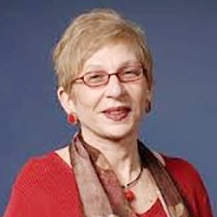click to dowload our latest edition
CLICK HERE TO SUBSCRIBE TO OUR NEWSLETTER


Published
5 years agoon
By
adminTALI FEINBERG
However, that was not to be, as the Israeli delegates withdrew their participation after they saw their names had been taken off the online programme.
The conference, titled “Recognition, Reparation, Reconciliation: The Light and Shadow of Historical Trauma” began on Wednesday, and will run until Sunday. More than 320 people from 23 countries are attending.
“The reason their names were taken off the online programme was to remove what would be a flashpoint for protest once the Palestinian Solidarity Campaign (PSC) statement was released to the public. The aim was simply to allow me to continue the discussion with PSC,” she said.
“Since graduate school, and even before, my personal and professional identity has been embedded in the academic ethos. The first premise of this ethos has been to encourage free discussion and exchange of ideas regardless of their content or of whoever is expressing them,” she said.
“Boycotting certain individuals because of their affiliation, their opinions, or their findings contradicts this basic first rule of academic life. Therefore, the call for boycotting a group of individuals whose work I know is aligned with mine goes against everything I believe in, my values, and the seriousness with which I take professional relationships with colleagues.”
She said this was the first time she had had to deal with this kind of situation. “I have been thrown on the horns of an ongoing dilemma. On the one hand, I want to protect Stellenbosch University from protests and ensure that this conference, which I have worked so hard to organise, goes well, and not allow any organisation to control how discussions are conducted, and what conversations are permitted. On the other hand, knowing that the flare-up is because of Israeli participation, I wanted my Israeli colleagues to understand the pressure that this imposes,” she said.
Professor Shifra Sagy of Ben-Gurion University confirmed that Gobodo-Madikizela had encouraged her to come to the conference even after the programme was altered. The two academics have known each other for years as they have both worked extensively in reconciliation and dialogue.
Gobodo-Madikizela said she was deeply committed to the work that her Palestinian and Israeli colleagues were doing. She described her longstanding connection to these academics, going all the way back to 1998, when she worked with Sami Adwan, a Palestinian Professor of Education, and Dan Bar-On, the late Israeli Professor of Psychology.
“I hosted Bar-On the previous year, when he visited South Africa to observe the public process of the Truth and Reconciliation Commission. Both Adwan and Bar-On are among leading figures in peace scholarship and activism that seeks an alternative form of engagement to the one that dominates Palestine-Israeli relations, and Adwan and I have shared platforms at international conferences,” she said.
“The late Bar-On’s book on the children of Nazi perpetrators influenced my own work, and became one of the foundational pillars in my scholarly pursuits,” she added.
From her perspective, Gobodo-Madikizela never wanted to silence or isolate Israelis – quite the opposite. “We, of course, believe in academic freedom, and we believe in the right to boycott, given the role that this played in our own struggle against apartheid. But I also know that our conference was not the appropriate vehicle for the application of the boycott,” she said.
In a statement released on 30 November, Stellenbosch University Rector and Vice-Chancellor Wim De Villiers echoed this view. “When the first statement expressing opposition to the participation of Israeli speakers came to the attention of the organisers, a strategic decision was taken to remove the names of individuals and their institutions from the website [not from the programme] as a precautionary measure to prevent academics and their institutions from being targeted, and to prevent the conference from derailing.”
He explained that only then did the “Israeli delegates decide to withdraw their participation as a result of circumstances beyond the control of the university and the conference organising committee”.
He added that “terminology such as ‘disinvited, uninvited or invitation unilaterally cancelled’ in reference to speakers who will no longer be attending, is simply not true. At no point did the conference organisers or Stellenbosch University request or suggest that any speaker should withdraw from the event. Gobodo-Madikizela continued her engagement with the various role players in a spirit of reconciliation, expressing regret over their withdrawal, and assuring them of their safety in South Africa if they were to attend.”
However, all the Israeli delegates told the SA Jewish Report that as soon as the online programme was altered, they had felt unwelcome. Anti-Israel activists, on the other hand, believed that they had scored a victory. “We commend the conference organisers for their respectful engagements and ultimate decision to respect the Palestinian Campaign for the Academic and Cultural Boycott of Israel guidelines for the implementation of the academic boycott against Israel,” wrote Boycott, Divestment and Sanctions South Africa (BDS SA) on 29 November.
The South African Jewish Board of Deputies pointed out in a statement on Facebook that, “It was because they had been unilaterally kicked off the programme that those academics decided not to attend the conference. There was nothing ‘voluntary’ about it. Even Stellenbosch University admits that the conference programme was changed to exclude speakers that various BDS-aligned factions were objecting to.”
There is one point that the Israeli academics and the university agree upon: In the words of De Villiers, “The most disappointing outcome of this sequence of events is the absence of robust debate on the Israeli-Palestinian issue at the conference.”
Pictured: Professor Shifra Sagy
